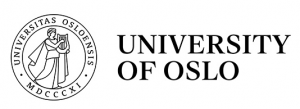UiO Post-Doctoral Research Fellowship in the Department of Archaeology, Conservation and History
Postdoctoral Research Fellow in Climate History

Job description
A two-year Postdoctoral Research Fellowship (SKO 1352) is available at the Department of Archaelogy, Conservation and History, University of Oslo.
The position is associated with NORCLI (Nordic Climate History. Using the past to envision the future). The candidate is expected to present a research project closely connected to the main project.
More about the position
NORCLI is an interdisciplinary project jointly run by the Department of Archaeology, Conservation and History (Prof. Dominik Collet) and Department of Geosciences in Meteorology (Prof. Kirstin Krüger) and is financed by UiO: Energy and Environment. It investigates what happened when Nordic societies faced abrupt climate change during the past 1000 years, aiming to contribute to and broaden contemporary discussions." NORCLI progresses from reconnecting and integrating data from historical and natural archives as well as climate models to narrating the result to a wider societal audience. The project collaborates closely with several other current projects (CLIMCULT, NORLIA, VIKINGS, CLIMCRIS, Force-VOL) in the field of climate history.
The postdoctoral fellow is expected to pursue a research project within this framework. As the candidate will be working closely with the second NORCLI postdoc based in the climate sciences, we ask for potential areas of collaboration to be highlighted in the application. During the first year the position is connected to an international research group on Nordic Climate history at the Center for Advanced Study (CAS) in Oslo. Previous documented experience with the approaches of climate or environmental history, interdisciplinary designs and the historical archives on climate is appreciated. The prospective candidates are welcome to contact the NORCLI project leaders ahead of submission of the job application.
The position is available for a period of two years.
The successful candidate is expected to be based in Oslo during the project period. Preferred starting date is August 2024.
The main purpose of postdoctoral research fellowships is to qualify researchers for work in higher academic positions within their disciplines.
Qualification requirements and personal skills
- PhD or equivalent academic qualifications with a specialization in history, climate and environmental history or a related historical discipline
- The candidate's research project must be closely connected with the central objectives of the project
- Fluent oral and written communication skills in English and preferably a Scandinavian language
- Personal suitability and motivation for the position
The doctoral dissertation must be submitted for evaluation by the closing date. Appointment is dependent on the public defence of the doctoral thesis being approved.
In the evaluation of the applications, emphasis will be placed on:
- The research project’s scientific merit, research-related relevance, and innovation
- The applicant’s estimated academic and personal ability to carry out the project within the allotted time frame and to contribute to the main project
- The potential to integrate and develop interdisciplinary approaches and to work in multi-disciplinary teams
- Good co-operative skills, and the ability to successfully join in academic collaboration within and across disciplines
We offer
- Salary NOK 575 400 – 657 300 per annum depending on qualifications
- A professionally stimulating working environment
- Membership in the Norwegian Public Service Pension Fund
- Attractive welfare benefits
How to apply
The application must include:
- Application letter describing the applicant’s qualifications and motivation for the position
- Curriculum Vitae with grades listed (with a list of education, positions, teaching experience, administrative experience and other qualifying activities)
- List of publications
- Project description (appox. 3 - 5 pages, maximum 14,000 characters. See Template for project descriptions). The project description must present a feasible progress plan. It should highlight potential areas of interdisciplinary cooperation with the corresponding postdoctoral fellowship in the climate sciences. It is expected that the applicant will be able to complete the project during the period of appointment
Please note that all documents must be in English or a Scandinavian language. The application with attachments must be delivered in our electronic recruiting system, jobbnorge.no.
The short-listed candidates will be invited for an interview.
Formal regulations
See also Regulations concerning Post-Doctoral Research Fellowships.
Following the Freedom of Information Act (Offentleglova) § 25, Chapter 2, information about the applicant may be used in the public list of applicants even if the applicant opts out from the entry in the public application list.
No one can be appointed for more than one Postdoctoral Fellow period at the University of Oslo.
The University of Oslo has an Acquisition of Rights Agreement for the purpose of securing rights to intellectual property created by its employees, including research results.
The University of Oslo aims to achieve a balanced gender composition in the workforce and to recruit people with ethnic minority backgrounds.
Contact information
For questions about the position:
Professor Dominik Collet
Professor Kristin Krüger
For questions about how to apply:
HR Adviser Mira Kramarova
About the University of Oslo
The University of Oslo is Norway’s oldest and highest ranked educational and research institution, with 28 000 students and 7000 employees. With its broad range of academic disciplines and internationally recognised research communities, UiO is an important contributor to society.
The Department of Archaeology, Conservation and History (IAKH) is comprised of three disciplines which in different ways study the past. The department has internationally oriented archaeologists, the only conservation program in Norway and the biggest group of historians in Scandinavia. The department has close to 100 employees, including non-permanent research fellows. The study programs span archaeology from the Stone Age to the Middle Ages, object and paintings conservation, and history from Antiquity to the present age.
